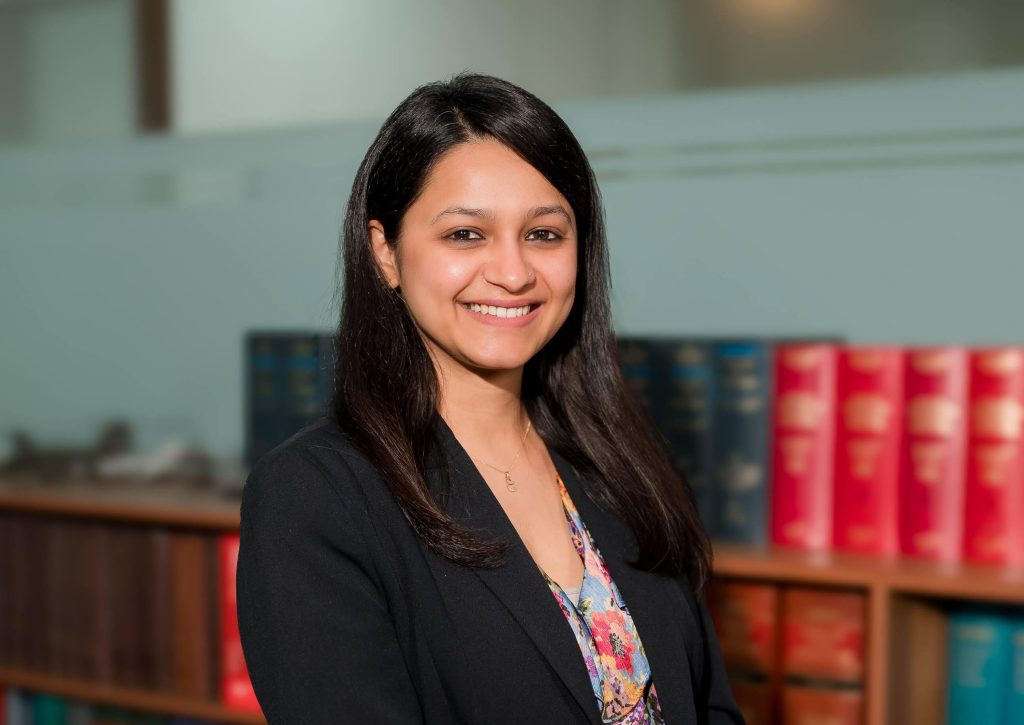This interview has been published by Anshi Mudgal and The SuperLawyer Team
Today, with almost a decade of experience behind you, looking back, what first drew you to law, and how did your undergraduate years shape your interest in intellectual property and allied fields?
My journey into law was less of a direct calling and more a process of discovery. Back then, I was more defined by the career paths I was closing the door on, and law felt like a world of opportunity. I treated my classes as an exploration, searching for that one area that would genuinely resonate with me. That moment finally came late in law school when I was introduced to Intellectual Property. As a still-developing field, it felt exciting, but what really captivated me was the unique space where creativity and legal protection meet.
That curiosity turned into a passion during my first internship with Mr. Ameet Datta, (formerly a Partner at Saikrishna & Associates) now the Managing Counsel at ADP Law Offices. As I watched technology evolve and brands become more valuable, I realized just how vital IP is as a shield for innovation, ideas, and expression. It was that realization that truly set my career path.
You went on to pursue an LL.M. at the Munich Intellectual Property Law Centre, one of the most respected programs in the world. What motivated you to choose this course, and how did studying in such an international academic environment broaden your understanding of IP law? Could you also share how aspiring candidates can enrol in such a prestigious program?
You know, it’s funny, I was getting really into IP law, but I kept feeling like I was seeing everything through a keyhole. All the thinking, all the cases, were from my own country’s perspective, and I just had this nagging feeling that I was missing the bigger picture.
MIPL stood out because it is uniquely focused on IP and brings together expertise from leading institutions such as Max Planck and the University of Augsburg. The program offered not only academic rigor but also the opportunity to learn alongside peers from across the world, each bringing their own perspective and experience. This international exposure was invaluable, as it gave me a broader view of how IP is understood and applied across jurisdictions.
For aspiring candidates, I would say the most important step is to build a strong foundation in IP during undergraduate years and to engage actively with research and writing in the field. The selection process is competitive, but genuine interest, clarity of purpose, and prior work or academic contributions in IP can make a strong application.
Alongside your studies, you published articles on significant IP issues such as copyright royalties, broadcasting rights, and the recognition of “well-known” marks. What inspired you to explore these themes, and how do you see academic writing contributing both to your professional practice and to the wider discourse on IP law?
During my course (thanks to MIPLC), I realised that writing is one of the best ways to discipline one’s thoughts and meaningfully contribute to discussions in this field. As students, we are often trained to see issues from a purely academic perspective, where outcomes are framed as either right or wrong. What MIPLC taught me instead was that in law, nothing is absolutely right or wrong . Rather, it is the reasoning and interpretation that lends weight to a position. That shift in perspective stayed with me. At the time, I chose to write on subjects like copyright royalties, broadcasting rights, and well-known marks, not only because I was working on them closely, but also because they had direct implications for creators and businesses. Over the years, I have come to value writing even more as it contributes to the collective understanding of the profession and, at times, can influence how laws are read and applied. For me personally, it became a bridge between academic study and real-world practice.
You began your professional career with Saikrishna & Associates, where you grew into the role of Senior Associate. Could you share some defining experiences from this phase whether in trademark prosecution, IP litigation, or consumer protection that played a key role in shaping your growth as a lawyer?
My early years at Saikrishna & Associates were deeply rooted in IP litigation, where I had the chance to work on matters that were both complex and high-stakes. Most of my focus was on IP disputes, and I was fortunate to work alongside some of the sharpest minds in the field. Those years gave me invaluable exposure from the intensity of courtroom practice and the rush of filings, to client interactions and my own growth as a lawyer.
Another significant phase of my career was in consumer protection, where I was entrusted with leading a team for a leading mobile manufacturer. The role required me to think beyond just the legal arguments, it was about strategy, execution, and making sure the client’s interests were protected at every stage. What stayed with me from that experience was not just tackling the legal issues, but also learning how to manage a team, set direction, and maintain consistency across multiple jurisdictions. That combination of leading people while steering complex matters was a real turning point in my professional journey and continues to shape the way I approach cases even today.
Over the years, you have gained exposure to diverse domains such as trade regulatory compliance, consumer law, employment disputes, and arbitration. How has this multidisciplinary experience been beneficial to handle complex, multi-jurisdictional matters for global clients? What sector-specific challenges have you faced while dealing with arbitrations for international clients?
My experience across these different domains has taught me that client issues rarely fit into neat legal boxes. What I have found, especially with complex, multi-jurisdictional matters, is that an issue that begins as a regulatory query can quickly intersect with consumer law or have employment implications. Having that broad background helped me to connect those dots early on. Instead of looking at a problem from a single perspective, I can anticipate how it might evolve and build a more resilient strategy for the client, which is essential when you’re navigating different legal cultures.
In arbitration, I have seen how sector-specific challenges can shape the course of proceedings. For example, in matters involving international clients, aligning the expectations of different legal systems with the procedural framework of arbitration requires careful navigation. There are also cultural and commercial nuances that need to be factored in, since what is persuasive in one jurisdiction may not resonate the same way in another. Learning to manage these differences while keeping the client’s broader objectives in mind has been an important part of my journey.
In your current role, what inspired your transition, and how are you approaching the leadership responsibilities of managing large-scale IP litigation campaigns and advising clients across multiple industries? What essential qualities do you look for when building your team?
The transition into my current role has been quite recent, so in many ways it is still a process of learning, adapting, and growing into the responsibilities that come with it. What inspired the move was the opportunity to work more closely with clients on a larger scale, not just on individual disputes but in shaping their overall IP strategy and helping them navigate complex litigation campaigns.
When it comes to leadership, especially on these large campaigns, my philosophy is pretty simple: give people a clear map and a good compass, then trust them to navigate their part of the journey. My main job is to make sure everyone understands the ‘why’ behind what we’re doing, the client’s ultimate goal. Once that vision is shared, I find the best results come from giving talented people the autonomy and support they need to truly own their work. It’s about guiding the strategy without micromanaging the execution.
As for building a team, a strong resume is just the start. I look for a certain mindset. I want people who are naturally curious, the ones who are always asking “what if?” because that’s how you stay ahead in a field like IP. I also look for a deep sense of accountability, where people treat a client’s problem as if it were their own. But above all, I look for a genuine collaborative spirit. A high-stakes litigation campaign is a team sport, and you need people who instinctively pick each other up and push each other to be better, especially when the pressure is on. That’s the kind of team that truly succeeds.
Looking back on your journey from law school to partnership, what key values have remained constant? What advice would you give to young lawyers aspiring to build a career in intellectual property especially when it comes to balancing deep subject expertise with the ability to adapt to rapidly changing technological and regulatory landscapes?
Looking back, the values that have remained constant for me are sincerity, consistency, and respect for the profession. No matter the stage of my career, I have found that showing up prepared, being thorough, and treating people with fairness has gone a long way in building trust with clients, colleagues, and even opponents in litigation. These values have shaped not only the way I work but also the way I lead. For young lawyers interested in IP, my advice would be to build a strong foundation in the subject while also remaining open to change. IP is deeply linked with creativity and technology, both of which are evolving faster than ever. The ability to understand new industries, learn continuously, and adapt legal thinking to new realities will make a significant difference. At the same time, it is important to stay grounded in the basics, because strong fundamentals are what allow you to adapt with confidence. If you combine deep subject knowledge with curiosity and flexibility, you can find a very rewarding path in IP law.
Get in touch with Riddima Sharma –




